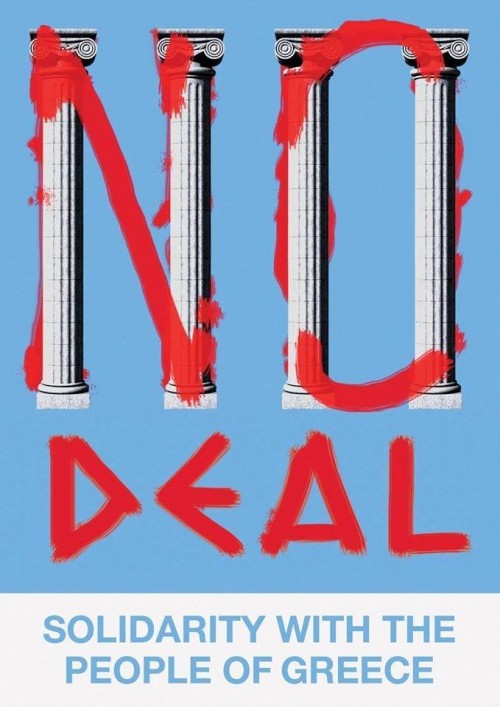As Greece teeters on the brink of both default and a disorderly exit from the euro zone, the only political party in Hungary that has lent its support behind the anti-austerity government of Greek Prime Minister Alexis Tsipras is the Balpárt (Left Party). The Balpárt translated Mr. Tsipras’s televised speech into Hungarian, in which he called a snap referendum for July 5th on a bail-out package that he sees as being punitive and which he is calling on voters to reject. They’ve also published images on their website and on Facebook, expressing solidarity with the Syriza government and its decision to reject the relatively firm stance on bail-out taken by the so-called Troika. (There was a seemingly unbridgeable disagreement between Athens, Brussels and the IMF over when a higher pension age should come into effect, as well as the elimination of a solidarity fund for those living on small pensions, and increases to VAT.)
I spoke with Balpárt’s chair, Szilárd Kalmár, about his views on Mr. Tsipras’s strategy in what is undoubtedly a turning point not only for Greece, but also for the euro and the European Central Bank. The latter must now decide whether or not to extend emergency liquidity to Greek banks, without which ATMs will run out of euro notes to dispense by Monday.
“The Troika is trying to conceal its failure by pushing an aggressive propaganda of success. Based on what I see, there really isn’t a Plan B. But Greece doesn’t want to become Europe’s Cuba,” noted Mr. Kalmár in our exchange, alluding to both the Caribbean island state’s colonial history, and also its isolation later in the twentieth century.
Balpárt’s leader described the approach taken by the IMF and the ECB during the negotiations with Greece as “psychological warfare.”
“I really appreciate how Mr. Tsipras is holding up,” he added.
I noted in our discussion that Mr. Tsipras is, however, facing a possible insurgency from the ever harder left, namely from a group called Antarsia, formerly known as the Anticapitalist Left Cooperation for the Overthrow. This coalition, formed in 2009, makes Syriza’s pretty deep red pale quite a bit in comparison. In government, Syriza has had to moderate its image somewhat, but the risk is a split on the left, especially as financial turmoil seem increasingly likely.
“I don’t think that Syriza will be able to keep some segments of the radical left, but it is important that these people continue to support the left-wing in general. They need to avoid the Golden Dawn,” said Mr. Kalmár, referring to the fact that in Hungary, the far right Jobbik has managed to scoop up disenchanted former supporters of the Socialist Party (MSZP) with some of its populist economic messages.
“It’s interesting that the Troika doesn’t seem to even consider this risk. It seems that if it were up to them, a Nazi party might as well replace Mr. Tsipras. So far, the radical left has been able to push Golden Dawn to the margins, ” Mr. Kalmár added.
Interestingly, MSZP has been largely silent on the turmoil in Greece and the apparent failure of debt negotiations. Hungary isn’t a member of the euro zone, so it is not a direct participant in these negotiations. But it would appear that Hungary’s radical left, which is still small, but will be contesting elections in 2018, is busy building partnerships with other hard left groups in Europe.




